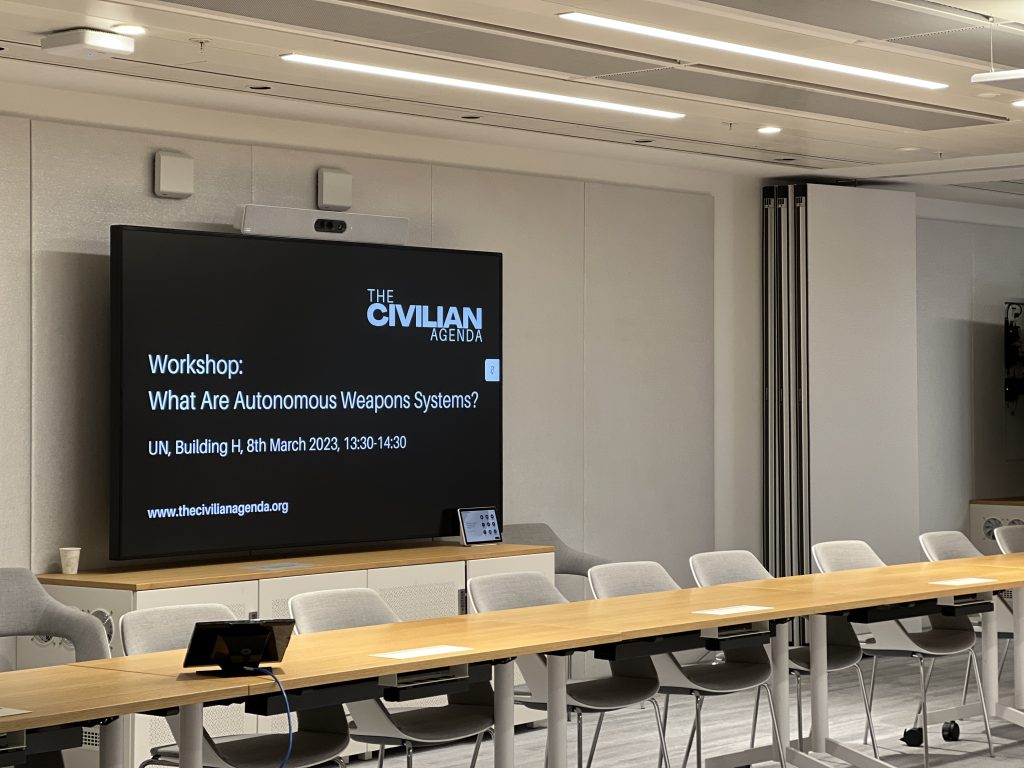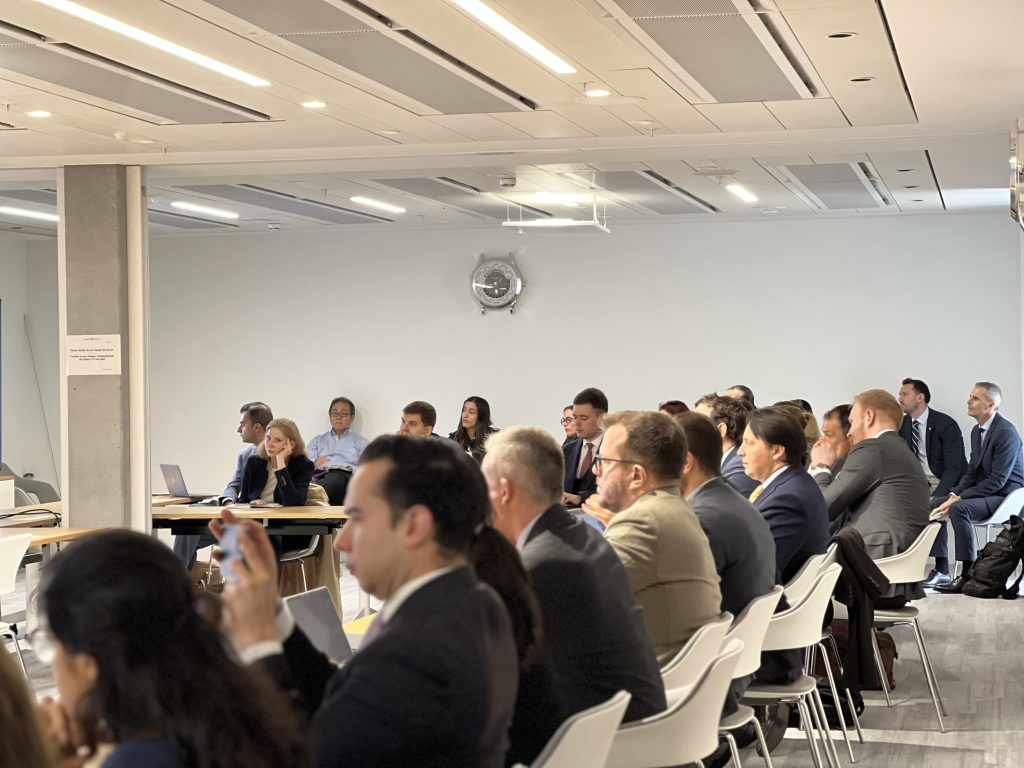Workshop Recap: Defining Autonomous Weapons Systems at the CCW GGE
From March 4–8, 2024, the Convention on Certain Conventional Weapons (CCW) Group of Governmental Experts (GGE) convened at the United Nations to discuss the future of Autonomous Weapons Systems (AWS). The Civilian Agenda hosted an event for diplomats participating in the ongoing discussions at the UN Convention on Conventional Weapons, Group of Governmental Experts titled, “What Are Autonomous Weapons Systems? A Proposed Definition for the CCW.”
The workshop, held on Friday, March 8, 2024, provided a platform for diplomats, experts, and civil society representatives to engage in dialogue about how to define AWS and address associated risks through regulation and prohibition.
The rise of automated military technologies in armed conflict has highlighted gaps in existing legal frameworks. While AWS have been discussed under the CCW for over a decade, significant disagreements remain on key issues, including the characterization of AWS and the types of regulations needed to mitigate their risks. These discussions are critical to ensuring international humanitarian law is upheld as new technologies emerge.
The Civilian Agenda’s workshop sought to advance discussions on defining AWS by presenting a working proposal:
“An Autonomous Weapons System is a system that, upon activation, selects and engages a target(s) without further human agency.”

The proposed definition aims to consolidate existing state positions and serve as a basis for developing rules that encompass the entire lifecycle of AWS, from design to deployment. This approach would allow states to address both the risks inherent to the technology and the manner in which it is used.
Key Themes Discussed:
- Defining AWS: Participants considered how the proposed definition could facilitate progress within the CCW by clarifying what constitutes AWS and setting the stage for targeted prohibitions and regulations.
- Balancing Flexibility and Specificity: The discussion explored how a flexible yet concrete definition could help states address the diverse technological developments and risks posed by AWS.
- Policy Gaps and Opportunities: The workshop highlighted gaps in current policies and identified areas where international legal standards could be strengthened to enhance civilian protection in conflict.

The event was attended by diplomats from various states, civil society representatives, and technical experts, fostering a collaborative exchange of perspectives. Ousman Noor, Co-Director of the Civilian Agenda, introduced the working proposal and facilitated discussions on its potential applicability in the CCW process.
The workshop underscored the importance of reaching consensus on an AWS definition to enable meaningful progress in future discussions. Participants agreed that further dialogue and collaboration are needed to ensure that any regulatory framework reflects the realities of modern warfare and provides adequate safeguards for civilians.
As the CCW continues to deliberate on AWS, the Civilian Agenda’s proposed definition offers a pathway for states to build a common understanding of the issue and develop legal instruments that address the challenges posed by autonomous technologies.
The Civilian Agenda will continue to engage with states and stakeholders in the coming months to support the development of effective policies that prioritize humanitarian concerns in the use of AWS.

